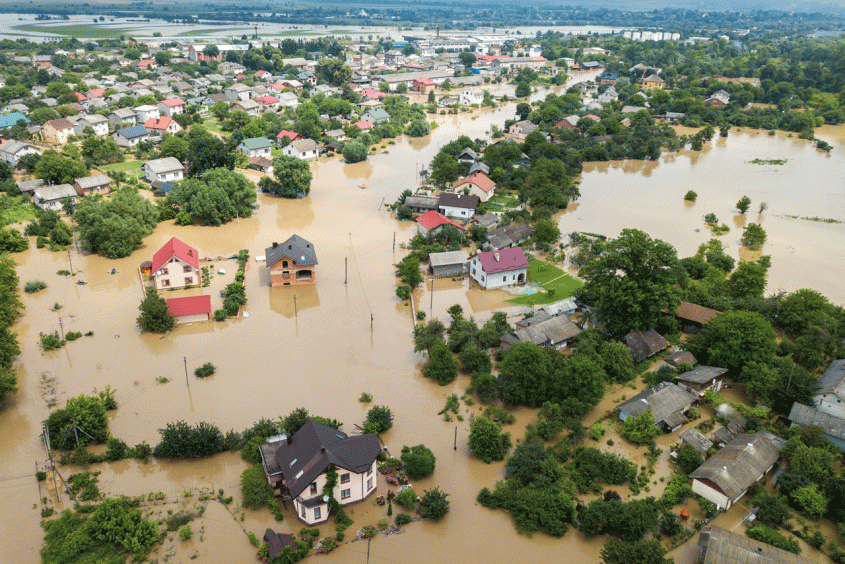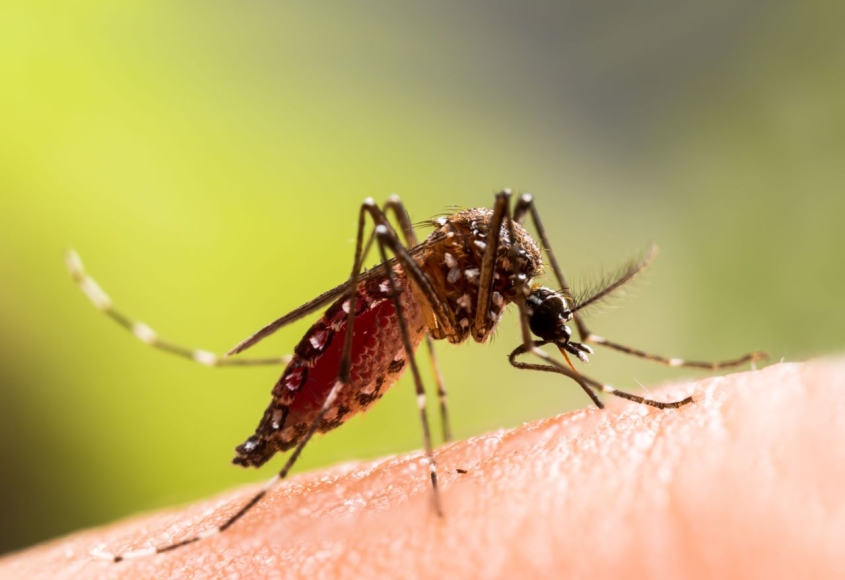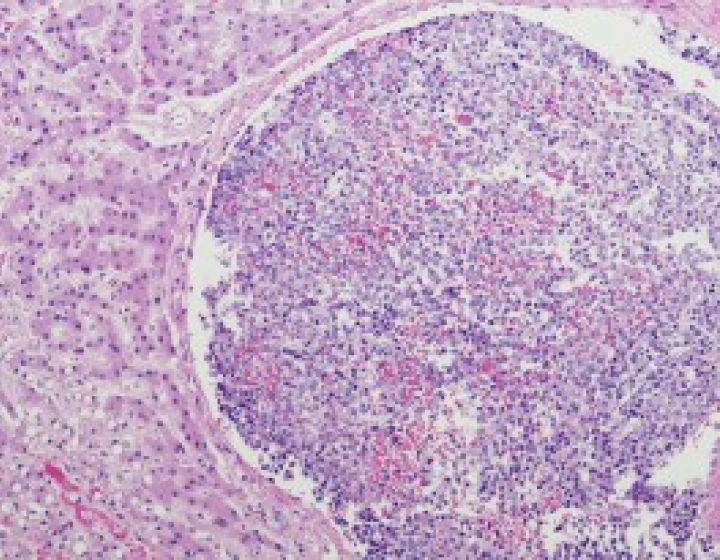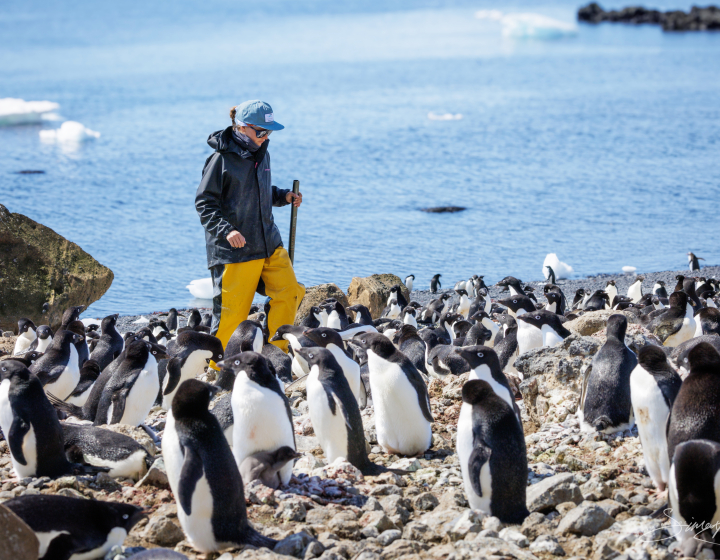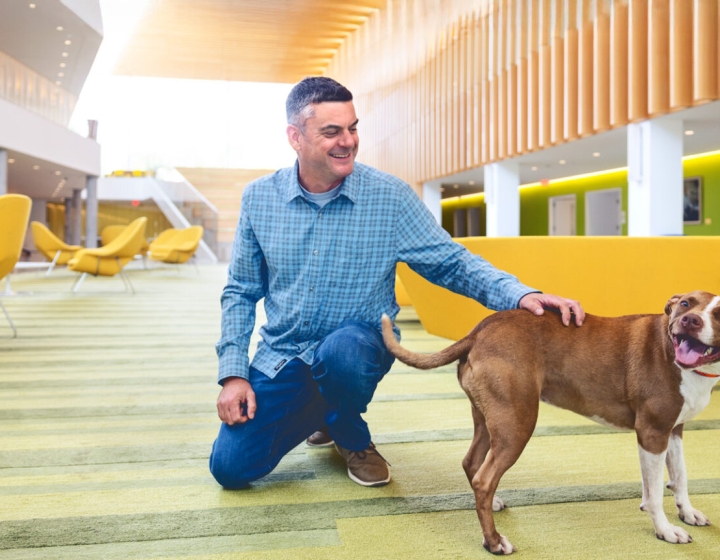Cornell awarded NIH National Center on Climate Change and Health grant
Faculty from the Department of Public & Ecosystem Health in the Cornell University College of Veterinary Medicine, in partnership with the University of Pretoria in South Africa, have received an NIH P20 grant to establish the Center for Transformative Infectious Disease Research on Climate, Health and Equity in a Changing Environment (C-CHANGE).
Climate change is dramatically increasing both the spread of diseases carried by mosquitos and ticks and the risk of new viruses spilling over from animals into people. “To have the greatest health impacts, we must pivot from reactively responding to outbreaks to proactively understanding the social and environmental conditions that increase risk of outbreaks,” says Dr. Alexander Travis, director of Cornell Public Health, founding chair of the Department of Public & Ecosystem Health, and multi-PI of the center along with Dr. Marinda Oosthuizen, professor and deputy dean of research and postgraduate studies at the Faculty of Veterinary Science of the University of Pretoria. “If we can understand the conditions that allow diseases to emerge or spread, then we can predict when they will happen and work to prevent them, which is our ultimate goal.”
C-CHANGE answers the call to address climate change’s negative impacts on human health around the world. “Preventing the outbreak of disease before it occurs is the best way to protect the public’s health,” says Travis. The center’s faculty and trainees will partner with rural communities primarily in South Africa and New York State who are most vulnerable to these changes, to collect and integrate diverse data on climate, land use, human and animal health, disease vectors, and the pathogens themselves. These teams will create predictive epidemiological models that can both help communities prepare, and form the basis of practical, preventative interventions.
This approach solves an age-old problem in the field. “Traditionally, academics working in different disciplines — such as the interface of climate change and infectious disease — have had minimal ability to understand or take advantage of each other’s approaches and data. And external partners in government and communities typically find these results both inaccessible and unhelpful,” says Travis. “C-CHANGE has assembled a truly transdisciplinary team to break down those siloes between disciplines, and between academics and our community partners.”
All research performed by the center will involve faculty and students from both Cornell and Pretoria. The first major research project will focus on viral pathogen spillover and will be led by Cornell’s Dr. Raina Plowright, the Rudolf J. and Katharine L. Steffen Professor of Veterinary Medicine, and Pretoria’s Dr. Wanda Markotter, professor and director of the Centre for Viral Zoonoses in the Faculty of Health Sciences. They will investigate how climate extremes and land use changes result in wildlife stress, increasing both viral shedding and interaction with humans, facilitating viral spillover events.
The second major research project will be led by Cornell’s Laura Goodman, Ph.D. '07, assistant professor in the Department of Public and Ecosystem Health and the Baker Institute for Animal Health, and Pretoria’s Drs. Marinda Oosthuizen and Veronica Ueckermann, head of infectious diseases at the Steve Biko Academic Hospital and associate professor in the Department of Internal Medicine; as well as Drs. Megan Riddin and Tiaan de Jager, director of the Institute for Sustainable Malaria Control and dean of the Faculty of Health Sciences. They will explore animal and human health, ecological and genomic data on tick- and mosquito-borne diseases in the context of climate change. This knowledge will be used to create community-based early warning systems for vector transmission of pathogens. Communities and health care systems can then try to prevent and prepare for the diseases they carry.
Two transdisciplinary cores will support these and a series of smaller research projects. The first core, the Living Evidence and Applied Data Modeling Core, led by Cornell’s Drs. Alistair Hayden, Laura Smith, and Ana Bento, and Pretoria’s Dr. Vukosi Marivate, professor and chair of data science, will ensure that all data generated are accessible across disciplines to all C-CHANGE researchers and partners. These faculty will also provide training on how to integrate diverse data such as temperature, precipitation, pathogen and vector genomics, human movement, vector life cycles, and human and animal health, in creating holistic models.
The work of the Community Engagement Core is equally critical to the success of the center. Led by Cornell’s Dr. Gen Meredith, associate director of Cornell Public Health and head of its Health Impacts Core, and Pretoria’s Dr. Ilana Van Wyk, this core will work in rural communities in South Africa, Zimbabwe, and New York State. They will ensure that C-CHANGE’s researchers partner with the most vulnerable communities at all stages of the projects.
This focus is essential, states Oosthuizen, “Whether in Africa or North America, rural communities often bear the greatest infectious disease burdens from climate change. The research C-CHANGE performs will help us understand how climate change is increasingly putting people at risk, so we can try to prevent it.” Oosthuizen further notes the unique advantage of C-CHANGE’s collaboration. “By combining data and expertise across ecosystems, public health, and social dynamics, we can develop a proactive approach to disease prevention that empowers vulnerable communities. This is not just about managing disease — it’s about creating resilience in a changing climate.”
Written by Lauren Cahoon Roberts



